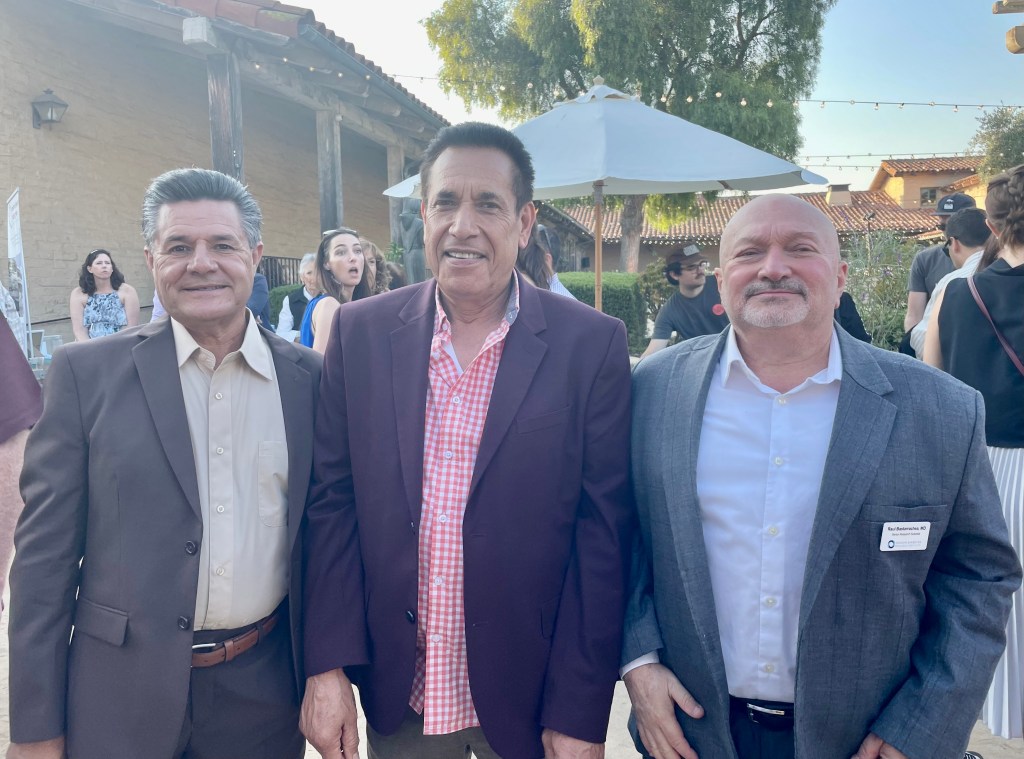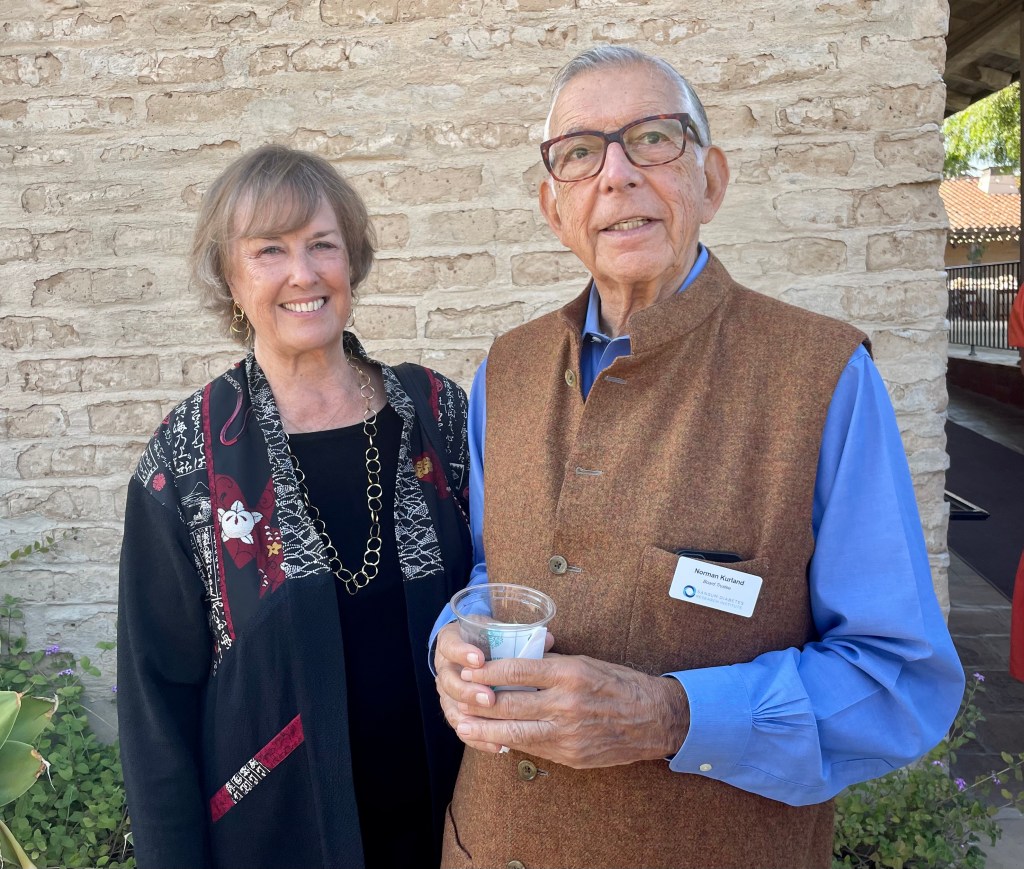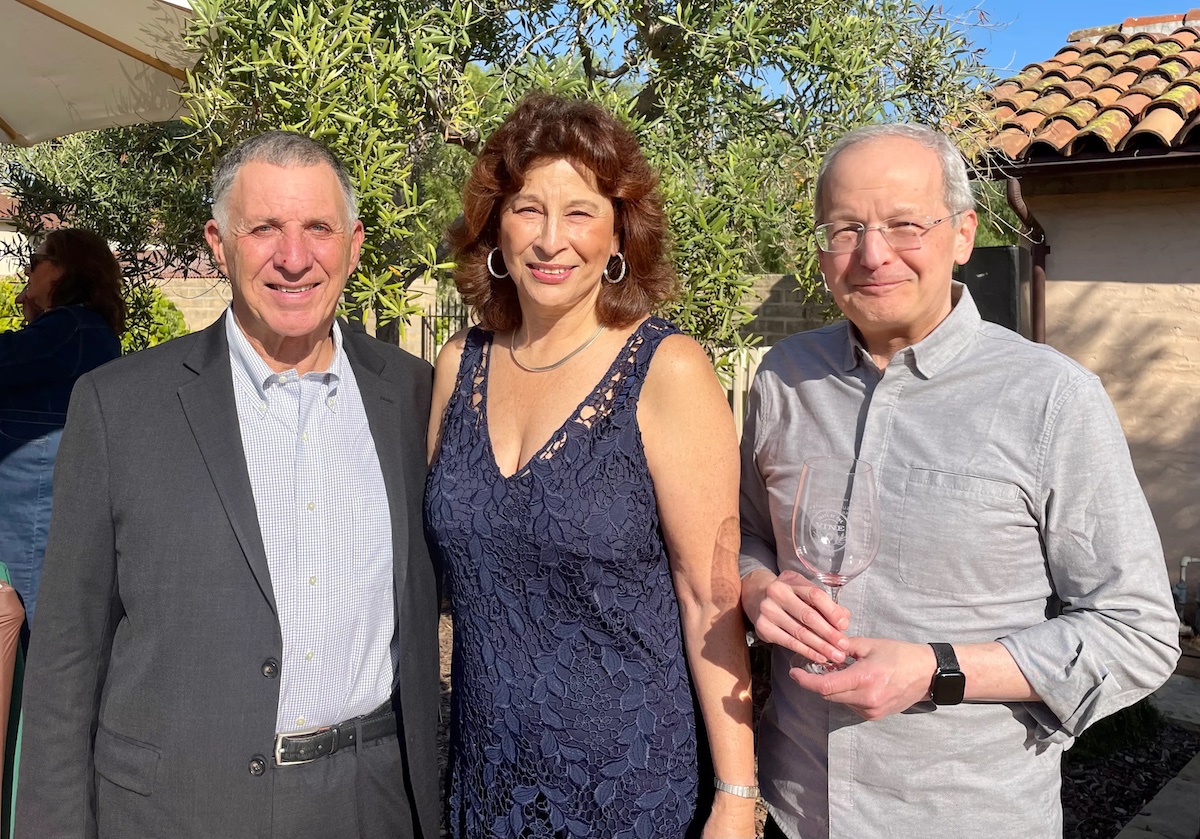At its Taste of the Vine fundraiser at the Santa Barbara Historical Museum on September 23, Sansum Diabetes Research Institute (SDRI) announced the public launch of a $20 million capital campaign to fund its precision metabolism research initiative, along with its continuing work on the artificial pancreas and diabetes and pregnancy. (SDRI and Sansum Clinic are both named after Dr. William Sansum but are separate entities.)
In the quiet phase of the campaign, SDRI raised $15.8 million toward its goal. Roughly half of the funds will go to construction of a state-of-the-art clinical research unit within its existing building at 2219 Bath Street and the other half to staffing and seed money for new research initiatives.
Precision metabolism recognizes that diabetes is a heterogeneous disease, having different adverse metabolic effects among people that impact the functioning of their organ systems. People with diabetes are at increased risk for heart disease, liver disease, blindness, and amputations. SDRI’s initiative will look at how nutrition, exercise, medication, and other inputs affect metabolic health among different people.
The work requires sophisticated physiologic research, hence the need to renovate SDRI’s facility, which was last renovated in 1975. Also necessary is the hiring of world-class scientists, such as Dr. Samuel Klein, its recently hired chief scientific officer.
SDRI already has been doing some work in this area and has collaborated with Washington University in St. Louis and UCSB on this, but there are few institutions that presently have the capability to do the work. According to Boardmember and Campaign Co-Chair Dr. Alex DePaoli, an endocrinologist who served as board president for six years, SDRI wants to be the leader driving this groundbreaking work.
SDRI has the track record, DePaoli maintains, to support this leadership role. When it was conducting clinical trials for insulin pumps and glucose sensors, the pump and sensor companies were not talking to each other. It was SDRI that closed the loop, filing the first algorithm that allowed the sensor and pump to talk to each other and deliver insulin.
A key feature of the precision metabolism initiative will be developing data to determine what types of diets can be safely and effectively used by diabetes patients. Presently there isn’t any credible research in this area. The popularity of incretins, such as Wegovy, which could have adverse effects on patients with diabetes, gives added importance to this area of study.
One trial at SDRI, recently funded by the National Institutes of Health (NIH), will research the safety and efficacy of the popular ketogenic diet on the diabetes population. Picking up on the work SDRI has done in the past with continuous glucose monitors, it will initiate ketone monitoring.
SDRI has initiated clinical trials funded by research foundations and the NIH on nutritional lifestyle interventions for those with diabetes and pre-diabetes. These will evaluate the benefits and dissemination of a culturally tailored, plant-forward lifestyle therapy program delivered by trained community health workers to socioeconomically disadvantaged Latinos living in the Santa Barbara area. By gaining an understanding of what leads to metabolic disease in this population, the research could also enable breakthroughs across populations.
In addition to the precision metabolism initiative, the funds raised by the capital campaign will also support SDRI’s ongoing work with pregnancy and diabetes. Years ago, SDRI developed algorithms for the treatment of women with diabetes, which are still used around the world.
Additionally, the funds will go to SDRI’s continued work on the artificial pancreas, also known as the closed-loop insulin pump sensor system. For many patients, the system is extraordinarily challenging, so SDRI continues its groundbreaking work.
According to Executive Director Ellen Goodstein, SDRI is well-suited to do clinical research — research on humans — because of its decades of experience working for both industry and government and its stellar track record. SDRI’s retention percentages of subjects in clinical studies are among the highest in the nation.
Another key advantage of SDRI is its nimbleness and ability to move quickly. Unlike large academic institutions, it doesn’t have a bureaucracy to wend through. Nor does it have academia’s focus on publishing, which, according to DePaoli, inhibits responding to new ideas. At SDRI, DePaoli related, researchers take a broad perspective and quickly adopt when there is a breakthrough.
One in 10 Americans has diabetes; more than one in three have pre-diabetes, making them at high risk for developing type 2 diabetes. In 2022, SDRI had total revenue of $7.2 million, including $3.6 million in contributions and grants and $2.5 million in research contracts. In that year, it conducted 26 clinical research trials involving nearly 1,800 individuals.









You must be logged in to post a comment.